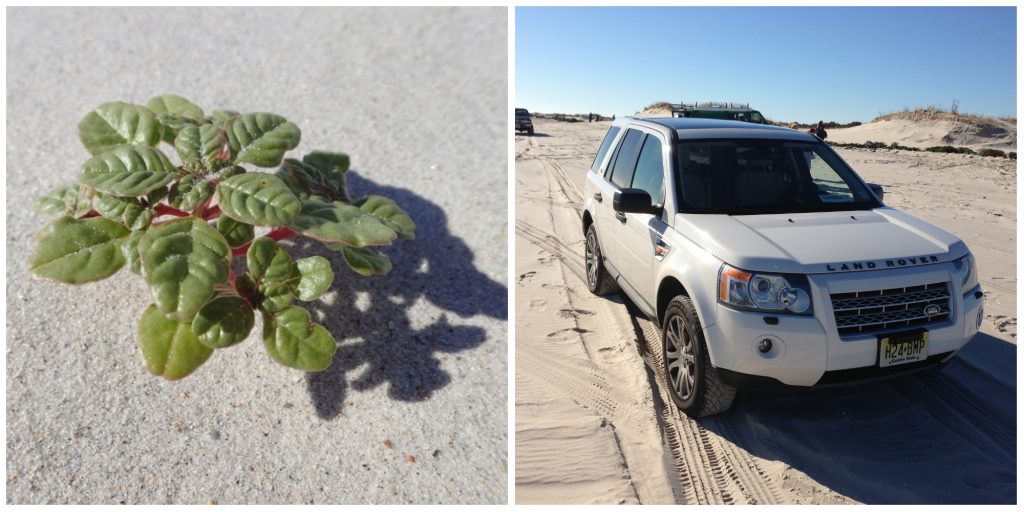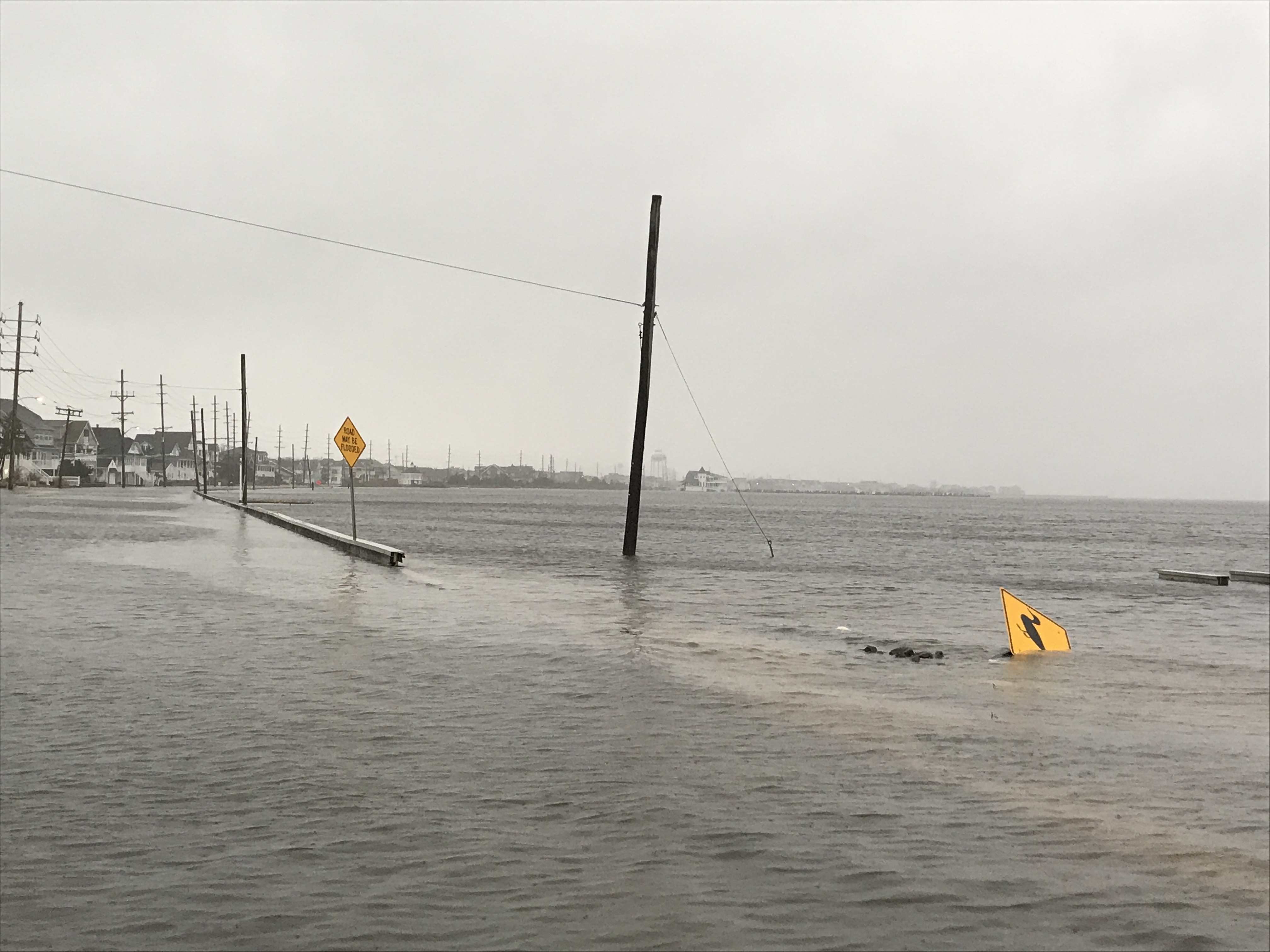Officials in one local community, being prodded by the federal government to reduce off-season vehicle access to the beach due to the alleged presence of a small grass species, held off on passing an ordinance that contained the suggested restrictions this week after dozens of recreational fishermen came to a township council meeting to speak on the issue.
While not all of the anglers were from Brick Township, where the controversy emerged most recently, those who attended a township council meeting there represented several local advocacy groups, including the New Jersey Beach Buggy Association and several fishing clubs. Those who spoke said that while restricting vehicular access to the sand for periods of time may not seem unreasonable at first glance, the request by the federal government is part of an anti-access pattern that regulators in Washington have been pushing for years. Moreover, restricting vehicle access also means restricting access to seniors and those with disabilities, including the many disabled veterans’ groups that sponsor surf fishing expeditions all year long.
Under the ordinance introduced in early July, which had been expected to be formally adopted this week, beach buggy access would have been curtailed at the request of the U.S. Fish and Wildlife Service, an agency under the jurisdiction of the Department of the Interior. Brick’s ordinance has historically allowed beach buggies from Oct. 1 through April 30 each year, but the revision would end the season March 15. Additionally, no beach buggy will be allowed to operate “on or near plant-protected areas” before Nov. 30. In practice, this could provide the federal government significant latitude to effectively block off areas where the beach can be accessed.
Brick – unfortunately, members of the group said – is among the first towns targeted for access restrictions.
“This is going to spiral up and down the coast to other towns,” said Jim Hutchinson, a township resident and longtime pro-fishing advocate who is also editor of The Fisherman magazine. “This is not just the Department of the Interior, but the Congress right now is looking to turn the Hudson Canyon into a petting zoo. It is my understanding that Gov. Murphy wants to see regulations amplified to eliminate beach buggies.”
Hutchinson, who is also a former director of the Recreational Fishing Alliance, a nationwide political organization that seeks to uphold fishing rights, warned of a slippery slope.
“Gov. Murphy has not been a friend of the recreational fishing community,” Hutchinson said, plainly. “Does he see this as a way to keep us off the beach for 45 days? If he gets 45 days out of Brick Township, will he figure he can get 60 days out of Island Beach State Park?”
He urged the council to table the matter until after the upcoming congressional elections, especially since Brick’s district is changing from the third, now represented by U.S. Rep. Andy Kim, to the fourth, now represented by U.S. Rep. Chris Smith. A shakeup in the congressional majority could also open new opportunities to oppose restrictions on access, he predicted.
“Let’s wait until after the congressional elections and go back to the Department of the Interior,” said Hutchinson. “We don’t drive on the dunes anyway – where is a blade of grass going to pop up on the exit or egress to the beach?”
The assembled crowd broke into applause after Hutchinson finished speaking.
Mayor John Ducey stated his support for beach access and fishing rights, reiterating that restrictions were never on the township’s radar, much less something that would have been proposed via ordinance except for the fact that they were requested by the federal government. He also said Brick has never experienced any issues linked to vehicle access to the beach during the off-season. His concern, however, is that the federal government could threaten beach replenishment funding if the township does not comply, which could either force Brick to miss out on a planned renourishment project in 2023 or be stuck with a bill if one federal agency convinces another not to provide funding to the township.
“That’s what they have hanging over our head,” the mayor said.
The proposed changes to the ordinance originated after the U.S. Fish and Wildlife Service requested the township modify the policy under the terms of a beach replenishment agreement, spurred by a coast-wide effort by the federal government to restrict access to portions of the shoreline where endangered grass species may be present. Specifically, Fish and Wildlife has identified the seabeach amaranth grass species species as populating local beaches.
There are about 50 seabeach amaranth populations remaining in the United States, however individual plants are known to grow from time to time in coastal areas. The species was once relatively common along the east coast, but is locally extinct in New England and considered endangered in New York, Rhode Island, Maryland and New Jersey. It is considered threatened nationally, with North Carolina having a slightly healthier population. In recent years, the federal government has dispatched inspectors to search for blades of grass in the dune line or poking through the sand of the beach berm.
The anglers’ fear of escalating restrictions is not unfounded; at times, the federal agency has proposed radical access restrictions – at one point requesting Seaside Heights physically shut down all beaches north of Casino Pier in the center of town. Christopher Vaz, the borough administrator in that town, was ultimately able to stave off the restrictions that could have all but destroyed the tourism economy.
There were no objections by officials to holding off on passing the ordinance following a number of speakers who addressed the council. One man, Al Dolce of the Central Jersey Wounded Warrior Project, said reducing vehicular access to the beach could cost disabled veterans their favorite pastime.
“They may not be ambulatory to the point where they can get down to the beach and fish,” said Dolce. “The sportsmen and women of this state have done a wonderful job with our soldiers, taking them hunting and fishing, and one of those groups responsible is the Beach Buggy Association. These plants are on the dunes – our people don’t ride on the dunes, we ride on the beach to fish.”
“They will use any excuse they can to shut down access,” one of veterans who fishes in Brick said. “Most people don’t have any power except to go to one of these meetings. I’ve never meant a hunter or fisher who trashes the land. Why would they ruin their own playground?”
Bobby Deleonard, past president of the Beach Buggy Association, warned access restrictions could expand over time to the point where they affect general access to the township’s ocean beaches.
“If they get you to ban beach buggies, they’re eventually going to tell you that you can’t rake the beach in the morning,” he said, as an example. “That is where this is going.”
Council President Vincent Minichino said a committee of the governing body would meet to discuss its options in dealing with the federal government’s proposal. The township will also consider a request by members of the Beach Buggy Association to form a separate committee to work on town-specific rules, as they have in other municipalities.

Advertisement

Seaside Heights & Seaside Park
Seaside Heights School Board Seeking More Participation, Will Change Meeting Times

Police, Fire & Courts
Seaside Park Man, 68, Charged in Fatal Crash With Pedestrian

Ortley Beach & North Beaches
Lottery Ticket Worth $10K Sold at Ortley Beach Acme

Ortley Beach & North Beaches
Abandoned Private Island ‘Mansion’ in Barnegat Bay Poised for Demolition









